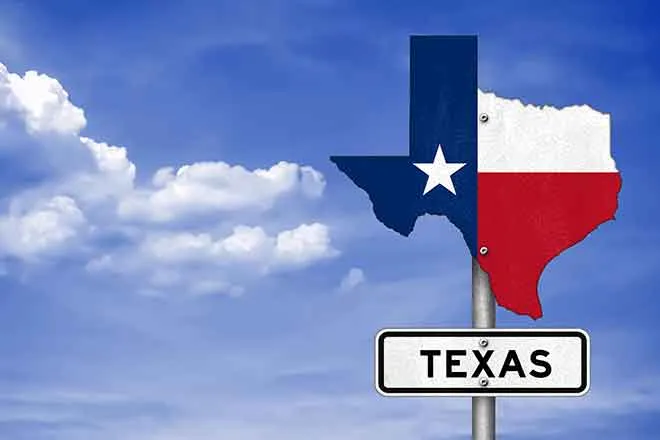
Daily Audio Newscast - August 5, 2025
© AlexLMX - iStock-823000260
Six minutes of news from around the nation.
Texas House moves to allow civil arrest warrants for Democrats who fled state; California advocacy groups say millions will lose care or pay more with Medi-Cal cuts; Oregon hospitals grapple with minimum staffing law, possible fines; Attempt to override North Carolina Gov. Josh Stein's veto of anti-DEI bill fails.
TRANSCRIPT
The public news service daily newscast August the 5th, 2025.
I'm Mike Clifford.
The Texas House Speaker said he signed civil arrest warrants for Democrats who did not show up to the special session earlier today.
State House Democrats fled Sunday in a bid to block a redrawing of the state's congressional map orchestrated by Republicans with the support of President Donald Trump. experts say the civil arrest warrants are likely unenforceable outside of state lines.
That from CNN.
They report the Texas House is set to reconvene again Tuesday afternoon after it didn't reach a quorum earlier today.
Lawmakers are meeting under a special session that can last only 30 days and the current session will end August 19th.
CNN notes the proposal put forward last week by Texas Republicans could potentially eliminate five Democratic U.S.
House seats as the GOP enters the 2026 midterms with a razor-thin majority.
And the cuts coming to Medicaid, known in California as Medi-Cal, will make health care more expensive and harder to access for millions of low-income Californians, according to a new report from Georgetown University.
The Congressional Budget Office estimates the cuts of about $1 trillion will cause at least 15 million people across the U.S. to lose coverage over the next 10 years.
Georgetown professor Edwin Park says the One Big Beautiful Bill Act passed by Republicans slashes the amount states are reimbursed and restricts provider taxes which help fund Medi-Cal.
This means the states cannot add new taxes or increase current taxes to help close budget shortfalls or finance various Medicaid improvements.
States are going to have less funding for their Medicaid programs.
They're going to have to make cuts across the board.
Right now California receives more than 81 billion dollars in Medi-Cal funding per year, which covers 66 percent of the cost of care.
I'm Suzanne Potter.
We're next to Oregon, where hospitals can now be fined for not meeting minimum nurse-to-patient ratios, but nurses say some hospitals are not following the spirit of the law.
Fred Katz is a nurse at Rogue Regional Medical Center and a board member of the Oregon Nurses Association who backed the new law.
He says at Rogue and other hospitals, "administrators sometimes meet the new staffing standards "for nurses by removing certified nursing assistants "and other support staff from staffing plans.
"This means hospitals may end up "with the required number of nurses on paper, "but in reality, the care team has shrunk."
It just feels like the hospital wants to work around the law.
They want to interpret it in a way that works for them and that potentially they avoid fines and then they can do what they want.
Budge your wise.
This is the first time the state's staffing requirements have included fines for noncompliance, which can be up to $5,000 a day.
Critics say the law, which sets nurse to patient ratios at one to four or higher for more acute care, will limit the number of patients that can be served.
I'm Isabel Charlay.
This is public news service.
An attempt to override North Carolina Governor Josh Stein's veto of a bill that would have prohibited diversity, equity, and inclusion practices higher education was unsuccessful in the General Assembly.
Senate Bill 558 was aimed at barring DEI and the UNC University System and community colleges.
In his veto letter for the bill, Stein wrote, "Rather than fearing different viewpoints and cracking down on free speech, we should ensure our students learn from diverse perspectives and form their own opinions."
President of the North Carolina State Conference of the NAACP, Deborah Maxwell, points out that the state has the second most historically black colleges and universities, and those schools were created to provide opportunities for people of color.
Those schools were formed because there was a need for a school that elevated the diversity and the equity of people of color, not only in the state of North Carolina.
We have multitudes of students who come from all across the country to attend our historical colleges.
There are 10 HBCUs in North Carolina. of Senate Bill 558 say DEI initiatives stifle academic freedom.
I'm Eric Tegethoff reporting.
And just like people served by safety net programs, local governments could face a much different economic future depending on how federal cuts trickle down.
The new domestic policy law championed by Republicans is known for big cuts to programs like Medicaid.
That's one area Red Wing Mayor Gary Acco is paying attention to, noting his city's ambulance service, led by the fire department is deep in debt.
If the ripple effects of federal cuts push that debt higher, tough choices could be made.
What other reductions have to be made or what increase in taxes have to be made?
The One Big Beautiful Bill Act did give local governments a break in other areas, including preserving the tax-exempt status of municipal bonds needed for public works projects.
Meanwhile, Yaco says they're strongly pursuing affordable housing development that meets the needs of workers.
He says that will benefit Red Wing's larger employers that lead the local economy.
I'm Mike Moen.
And finally, a local band has been deemed the King of the Chicago River after transforming it into a floating musical stage.
Lawrence Tome has sparked a movement within the grassroots musicians network.
Band member Ben Kinzinger says his Sad Cowboy Sound group has led secret shows atop a cement structure for years.
Now they've turned into a local attraction that brings people together.
It's pretty epic.
I had a whole crowd of folks that are, you know, 20, 30 feet out in front of you and there's a body of water between.
And like one of these shows, there's probably 30 plus kayaker, canoe people out on the water, other bigger boats.
For Illinois News Connection, I'm Judith Ruiz Branch.
This story was produced with original reporting by Amy Franke-Felogy for Arts Midwest.
This is Mike Clifford for Public News Service, member and listener supported.
Find our trust indicators at publicnewsservice.org.

















